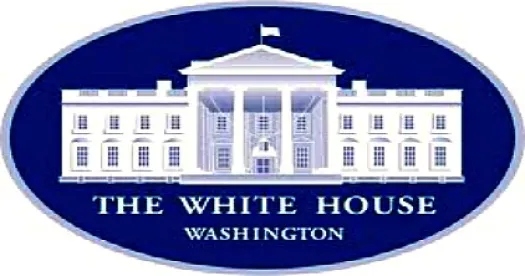We are writing to report on the latest significant developments in the effort to reform the Committee on Foreign Investment in the United States (“CFIUS”). On January 25, 2018, the Senate Committee on Banking, Housing, and Urban Affairs (“Senate Banking Committee” or “Committee”) held an open hearing entitled “CFIUS Reform: Administration Perspectives on the Essential Elements” in which senior CFIUS officials testified on potential legislative enhancements to CFIUS. The Committee heard from a panel of three Administration witnesses: Heath Tarbert, Assistant Secretary of the Treasury for International Markets and Investment Policy; Richard Ashooh, Assistant Secretary of Commerce for Export Administration; and Eric Chewning, Deputy Assistant Secretary of Defense for Manufacturing and Industrial Base Policy. This was the Committee’s third hearing on CFIUS in the last several months and the second since Congress began consideration of the Foreign Investment Risk Review Management Act (“FIRRMA”)—a bill introduced by Senator John Cornyn (R-TX) in the Senate and Congressman Robert Pittenger (R-NC) in the House to reform CFIUS.
Equally significant, in advance of the hearing, the White House issued a press release formally expressing President Trump’s support for FIRRMA while also affirming the Administration’s support for an open investment policy, the first such formal pronouncement of support for open investment from the Trump White House. The White House statement said, in pertinent part:
The Administration supports House and Senate passage of … (FIRRMA). Modernizing the Committee on Foreign Investment in the United States (CFIUS) in line with FIRRMA would achieve the twin aims of protecting national security and preserving the longstanding United States open investment policy.
The United States has long been the world’s premier destination for international investment … FIRRMA, by modernizing CFIUS, would strengthen our ability to protect national security and enhance confidence in our longstanding open investment policy.
At its core, FIRRMA would expand the scope of transactions reviewable by CFIUS to more effectively address national security concerns that fall outside the current scope of CFIUS review. FIRRMA would allow CFIUS, which was last updated 10 years ago, to adjust its procedures to ensure that the process is tailored, efficient, effective, and administrable. Additionally, FIRRMA would require an assessment of the resources necessary for CFIUS to sustain its critical work, and would both establish a CFIUS Fund and permit filing fees to help achieve that end.
In supporting Congress’s efforts to modernize CFIUS through FIRRMA, the Administration looks forward to working with the relevant committees of jurisdiction on the legislation to ensure it achieves the intended effect, including protecting our national security from emerging risks while maintaining an open investment policy.
While key members of the Administration already had communicated their support for FIRRMA — several Cabinet members, including Defense Secretary James Mattis, Attorney General Jeff Sessions, Commerce Secretary Wilbur Ross, and Treasury Secretary Steven Mnuchin had previously endorsed the legislation — the formal press statement from the White House, issued on the eve of the first hearing on FIRRMA to take testimony from senior Administration officials, was significant because it underscored the close collaboration on the legislation between Congress and the Administration, as well as the strength of the Administration’s support.
The Senate Banking Committee hearing was well attended, including participation by Chairman Michael Crapo (R-ID) and Ranking Member Sherrod Brown (D-OH), as well as by Catherine Cortez Masto (D-NV), Robert Menendez (D-NJ), Richard Shelby (R-AL), Jon Tester (D-MT), Thom Tillis (R-NC), Mark Warner, (D-VA), and Elizabeth Warren (D-MA). The Administration witnesses focused on whether the bill would provide sufficient enhancements to CFIUS in order to keep pace with efforts from foreign governments, particularly China, to obtain a technological advantage through the acquisition of sensitive U.S. technologies.
The witnesses began by expressing strong support for the proposed legislation in its current form. Mr. Tarbert, the principal political appointee with oversight responsibility for CFIUS, suggested in prepared remarks that FIRRMA contains “four pillars” that drive needed CFIUS modernization: (i) an expanded set of reviewable transactions under CFIUS jurisdiction; (ii) greater authority for CFIUS to coordinate transaction reviews with other appropriate agencies; (iii) increased information sharing with partner nations and their CFIUS analogues; and (iv) the establishment of a CFIUS appropriations fund to ensure that CFIUS is adequately resourced. Mr. Ashooh added that FIRRMA properly frames CFIUS as one element amidst a larger national security review structure that includes the Department of Commerce’s Bureau of Industry and Security. Mr. Chewning expressed support for FIRRMA as “a whole-of-government response to a critical national security challenge — an insurance policy on the hundreds of billions of dollars per year we invest in our defense industrial base.”
The witnesses further agreed that several specific provisions in the bill reflect necessary CFIUS reforms. For example, the witnesses expressed support for FIRRMA’s expansion of CFIUS jurisdiction to include the review of joint ventures not currently subject to CFIUS review, such as overseas joint ventures that involve only technology contributions and associated support from U.S. companies. Mr. Tarbert expressed CFIUS’s concerns that companies currently attempt to avoid CFIUS review by placing sensitive U.S. technologies in joint ventures so that they are not included within “U.S. businesses” subject to CFIUS jurisdiction. Mr. Tarbert, echoed by Mr. Chewning, stressed that FIRRMA expressly would expand CFIUS’s ability to review these alternative investment structures. Mr. Ashooh added that FIRRMA ensures CFIUS would not introduce this type of expanded jurisdictional authority until the appropriate regulations and support are in place.
Similarly, the witnesses supported FIRRMA’s proposed enhancement of the review of nonpassive, non-controlling interests in U.S. companies. Messrs. Tarbert and Chewning noted that some foreign investors structure their transactions to establish an ownership interest that may be too low to be deemed “controlling” for purposes of CFIUS review but which interest is sufficiently significant to allow those investors to influence the U.S. target’s operations. The witnesses accordingly praised language within FIRRMA that would give CFIUS expanded authority to prevent parties from restructuring their transactions in this manner for certain types of technology companies
Mr. Tarbert suggested that these additional expansions were necessary, along with additional resources, in light of the growing national security implications of certain transactions. In support of this point, Mr. Tarbert notably cited data reflecting the increased (and increasing) number of CFIUS reviews, as well as the lengthier reviews and investigations that have become more common in CFIUS. For example, he observed that the volume of CFIUS cases has expanded from fewer than 100 cases in 2009 and 2010 to nearly 240 cases in 2017. He also noted that while only about 4 percent of cases proceeded to a second-stage investigation in 2007, approximately 70 percent of cases went to investigation in 2017.
Other notable comments in the hearing included:
-
FIRRMA contains a proposed mandatory filing requirement for state-owned investors who would acquire a 25 percent or greater interest in a U.S. business. Mr. Ashooh, in his written testimony before the Committee on this issue, recommended that the threshold for this mandatory filing requirement be lowered to capture investments of less than 25 percent.
-
Senators Cortez Masto and Menendez raised additional questions regarding foreign investment behavior outside of the context of state-owned enterprises. Senator Cortez Masto expressed a concern, for example, that foreign nationals could currently buy a vacant plot of land near a U.S. military installation without fear of CFIUS regulation and use the land to conduct surveillance of U.S. military activities. Although CFIUS has historically exempted “greenfield” investments from review, both Messrs. Tarbert and Chewning expressed support for expanding CFIUS jurisdiction to include review of such a real estate transaction near sensitive U.S. facilities, irrespective of whether a U.S. business exists on the property in question.
-
Senator Menendez separately asked whether FIRRMA would empower CFIUS to reopen a foreign business’s prior CFIUS approvals if that party is later found to have misrepresented its foreign ownership to CFIUS. Mr. Tarbert stressed that CFIUS currently accounts for this risk in its existing review structure.
-
Senator Tillis emphasized that CFIUS simultaneously should encourage healthy foreign investment in the United States and asked if additional CFIUS review authority under FIRRMA would chill foreign investment. Both Messrs. Ashooh and Tarbert expressed agreement with this concern. Mr. Tarbert referenced the fact that FIRRMA contemplates introducing a “short form” CFIUS declaration that could be filed to determine whether CFIUS has sufficient interest in a transaction to merit a full review. Mr. Tarbert suggested that this declaration will allow companies to preview the CFIUS considerations associated with a potential transaction and thus mitigate some of the business uncertainty associated with foreign investment in the United States.
-
Separately, Senators Warner and Warren expressed concerns about FIRRMA in the context of coordinating the U.S. national security review process. Senator Warner noted that China’s pursuit of a “whole of society” approach to technological advancement stands in contrast to the United States’ current national security review structure, which assigns different responsibility for potential security risks to varying agencies. Senator Warren cited the Department of Defense’s recent failure to update the Military Critical Technologies List as an example of one agency’s inability to identify new technology concerns in a timely manner, and she wondered whether the current national security review process is sufficiently “systematic” to keep pace with the latest developments. In response, the panelists suggested that the current decentralized structure generally allows for efficient review by the appropriate party. Mr. Ashooh testified that the Department of Commerce, for example, uses Technical Advisory Committees — dedicated groups of subject matter experts — on an ad hoc basis to leverage expertise in identifying new technologies of concern. Messrs. Tarbert and Chewning similarly expressed confidence in CFIUS’s inherent interagency review process to identify and protect new sensitive technologies.
-
Lastly, Senator Warren noted that CFIUS would be unable to take on an expanded role pursuant to the FIRRMA reforms if it did not receive a corresponding increase in resources. In closing the hearing, Chairman Crapo in turn asked the witnesses to prepare written responses regarding whether FIRRMA appropriately addresses this resource concern. Chairman Crapo asked the witnesses to consider specific FIRRMA reforms in this area and made reference to a particular proposal that would introduce a CFIUS filing fee of up to the lesser of $300,000 or 1 percent of the transaction value.









 />i
/>i

